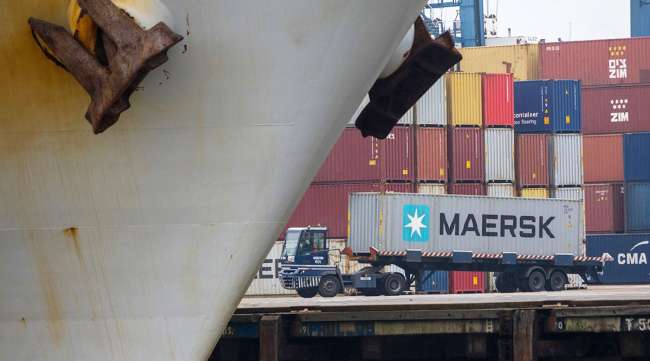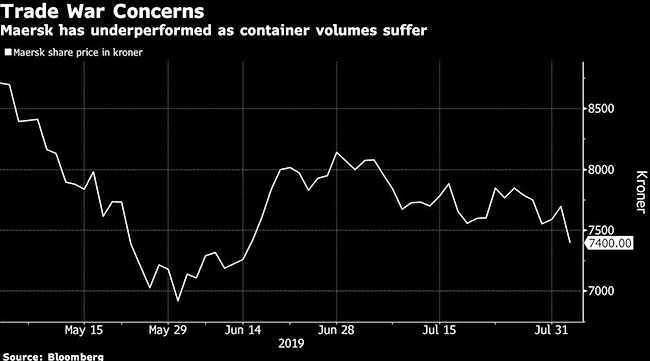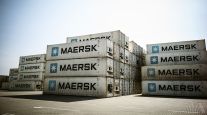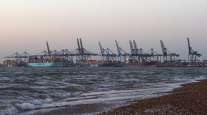Maersk Plunges as Investors Dump Trade Icon on Trump’s Tweets

[Stay on top of transportation news: Get TTNews in your inbox.]
Shares in A.P. Moller-Maersk A/S, the world’s largest container shipping line, plunged the most in two months after President Donald Trump escalated his trade war against China.
The stock of the Danish company, which handles about a fifth of the world’s manufactured products transported by sea, lost as much as 4.3% in Copenhagen, wiping out most of this year’s gains.
“Maersk is a highly profiled and liquid stock and if investors want to sell on trade war concerns, they tend to sell Maersk shares,” said Frans Hoyer, an analyst at Handelsbanken, by phone. “At the start of the year, Maersk was accused of being overly bearish with its view on the 2019 container market, but it’s turning out that the company was right.”
Trump tweeted Aug. 1 that he plans to add a 10% tariff on $300 billion in Chinese imports, which prompted China to respond with a warning of countermeasures. The silver lining for Maersk, which operates more than 700 vessels, is that it’s underexposed to the transpacific trade lane, which would be hit the hardest by a drop in Asian shipments to the U.S.

“I think that what we see in the market today is an overreaction, because at the moment, it’s just a tweet,” Hoyer said. “If you look at the Maersk share price, it’s already trading at very low levels.”
Stocks dropped across the Nordic region, home to many large companies that are embedded in the global supply chain and make a living off selling their goods around the world. SKF AB, Atlas Copco AB, Sandvik AB, Volvo AB, Ericsson AB, Boliden AB and SCA AB all dropped more than 3%.
Maersk CEO Soren Skou said in May that 2019 will be “the year of the trade war.” The effects are already showing as Maersk estimates that global container trade grew just 1.7% in the first quarter from a year earlier, down from 3.6% for all of 2018.
While container lines have no control over the trade war and its impact on demand, there are signs they have become better at reducing the overcapacity of vessels that has hurt industry profits for the better part of a decade. Measures include increased scrapping of older ships, partly due to stricter regulations on fuel, and more slow-steaming, a technique of sailing at reduced speed, Hoyer said.
“The container industry seems to have better control of the supply side now and will be able to adjust capacity if demand weakens, at least to some extent,” he said.




